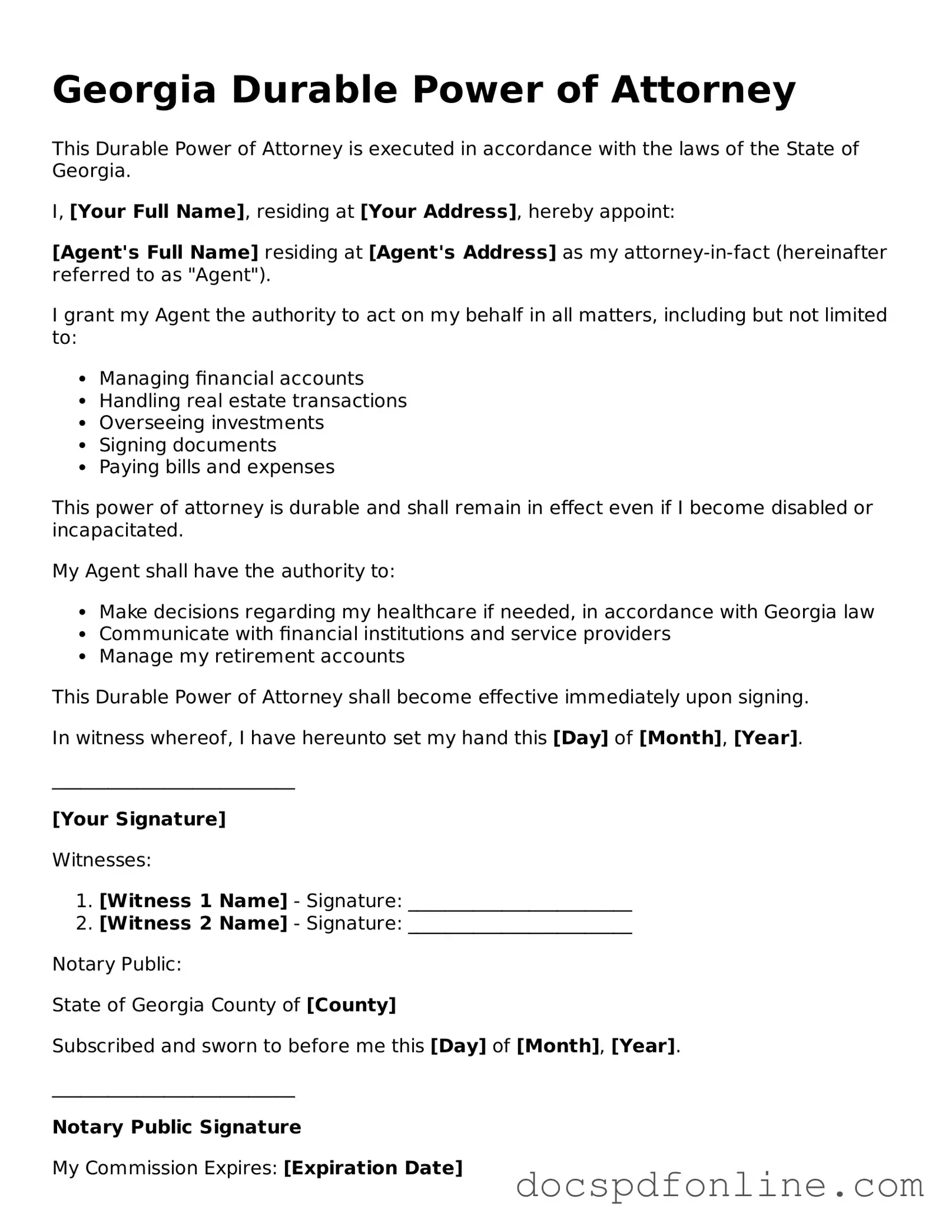Legal Durable Power of Attorney Template for Georgia
A Georgia Durable Power of Attorney is a legal document that allows an individual to appoint someone else to make decisions on their behalf, particularly when they become incapacitated. This form ensures that your financial and personal matters are managed according to your wishes, even if you are unable to communicate them yourself. Understanding this document is crucial for anyone looking to secure their future and protect their interests.
Launch Editor Now

Legal Durable Power of Attorney Template for Georgia
Launch Editor Now
Save time — finish this form fast
Finish Durable Power of Attorney online — edit, save, download made easy.
Launch Editor Now
or
↓ PDF File
